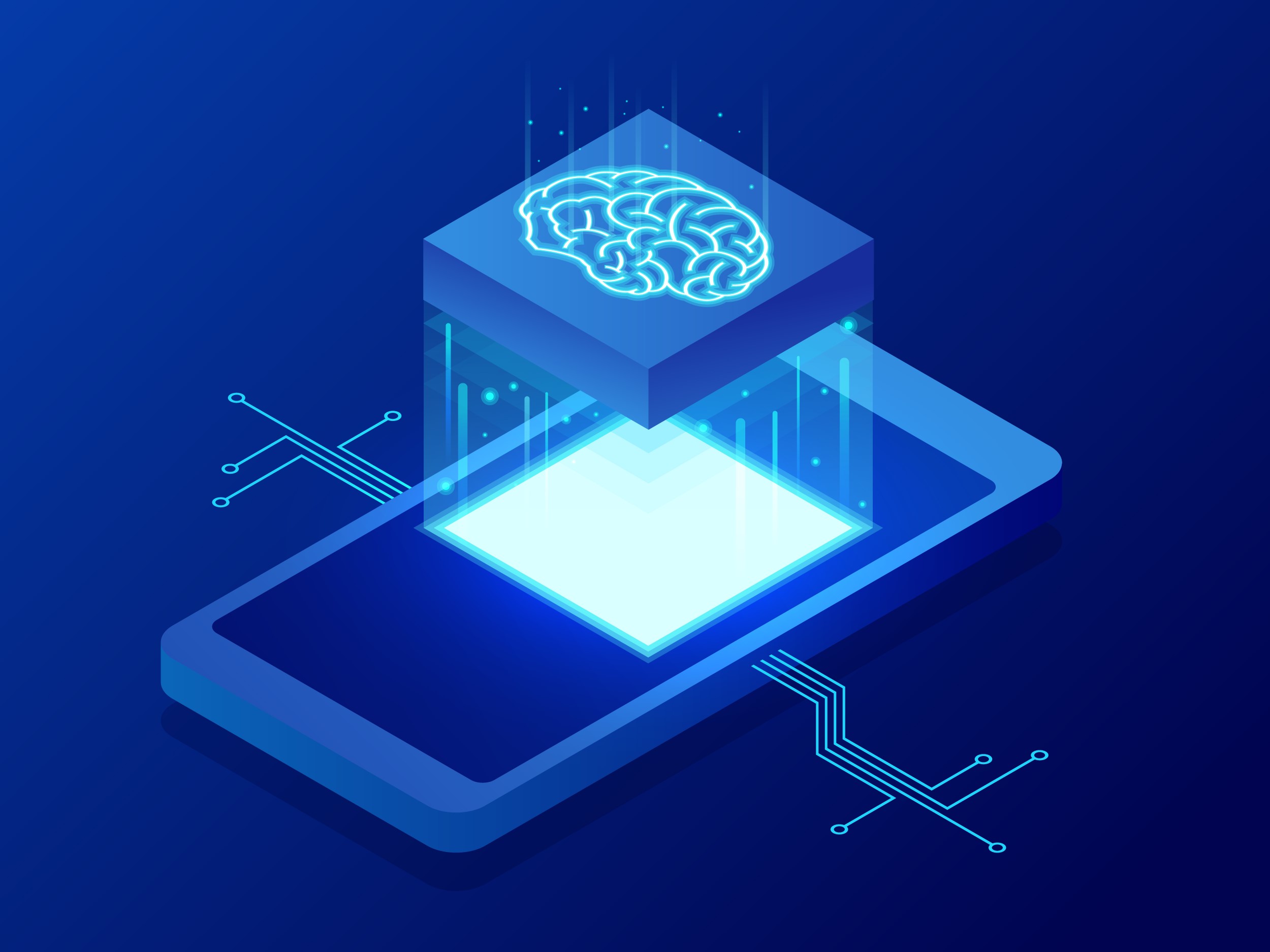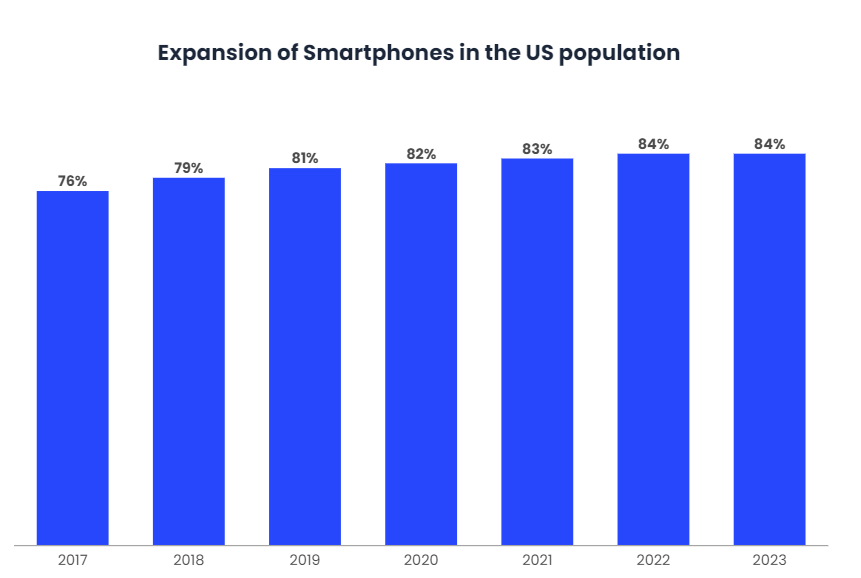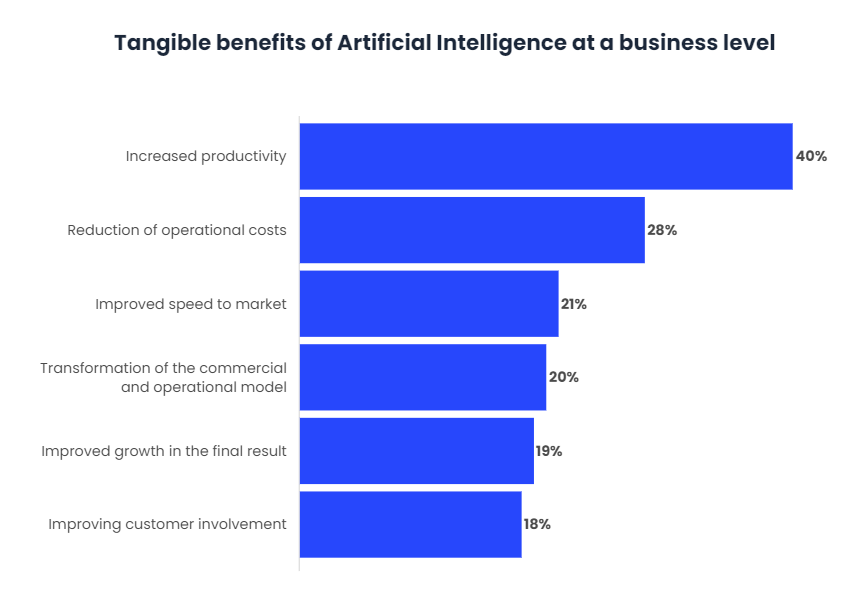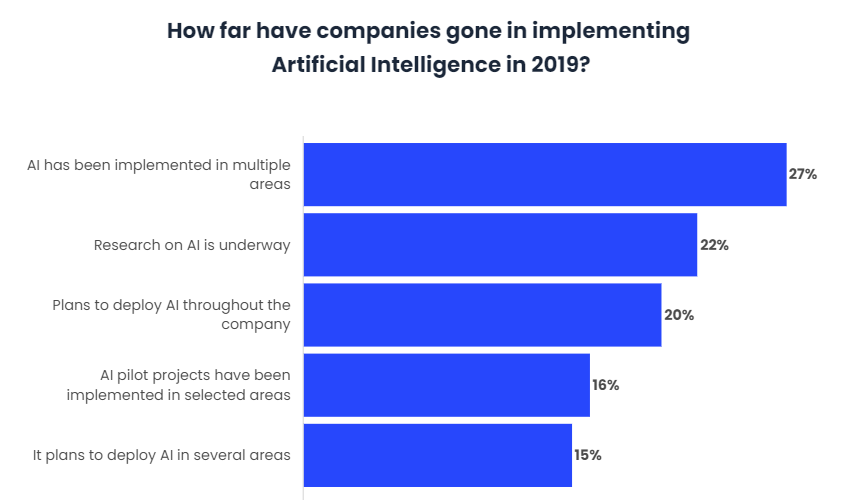Once again, Artificial Intelligence will make all the difference

Technology is growing and advancing at an unstoppable rate. Things that were never thought would exist are now part of everyday life. Since the invention of the personal computer, Smartphones and now the emergence of machines equipped with Artificial Intelligence (AI), technology is evolving exponentially.
One of the fastest growing areas of technology is mobile technology. Since the beginning of 2019, more than 80% of Americans own a Smartphone, which shows how the world of technology has improved as the number of users has increased.

Both large and small businesses are paying special attention to the mobile platform, with the aim of improving the customer experience. As new business projects focus on mobile devices, new trends will emerge around this sector. For this reason, it is expected that by 2020 the panorama of mobile trends will have taken a relevant turn.
More proactive applications
A priori, introducing Artificial Intelligence in much of everyday life may sound like a crazy idea, however, AI is already implemented in most mobile applications.
For example, IA can be seen in action in text applications where users are offered a list of possible answers in relation to the conversation held so far. These suggested sentences are designed so that the user can click on an automatically generated answer without typing anything.
This proactive feature only adds to the amount of assistance received from applications every day. AI-assisted applications are more productive, run faster, have fewer problems, and offer more features than ever before.
As a result, the latest reports conclude that 99% of executives in technical positions confirm that their organizations will increase their spending on Artificial Intelligence in the coming year, a level of funding increase probably unmatched in any other department in the corporate world.
The benefits are incalculable
By leveraging Artificial Intelligence, companies can accelerate digital innovation and progress.

These are some examples of the benefits Artificial Intelligence offers when used in conjunction with standard business practices.
- Increased productivity: By minimizing human error, IA technology increases productivity in the workplace. No matter how skillful the workgroups, they are still made up of humans and therefore prone to mistakes. AI is not a perfect worker, but the likelihood that you will make a mistake is greatly reduced compared to your human counterparts.
- Reduced operational costs: By eliminating much of the human equation, AI also reduces associated costs. By automating processes and tasks, costs can be reduced effectively, allowing greater focus on other areas.
- Improved speed of commercialization: Artificial Intelligence is able to analyze and make decisions with large amounts of data faster than humans. By making faster and better decisions based on data extraction, analysis and results for cognitive technologies, products can get to market much faster.
- Transforming the business and operational model: Artificial Intelligence tends to cause a stir in traditional business models. With its capabilities to automate and analyze various tasks and data circuits that would otherwise have been treated by a human being, resources and structures can be reused to accommodate Artificial Intelligence as a vital asset.
- Improved bottom line growth: bottom line growth refers to a company’s net profits. This growth is directly related to the previous benefits provided by AI technology: automation, limitation of human errors and reduction of operating costs. Profitability is a key point in a good business, and delegating responsibilities to an economic program but effective results in a net profit for the company as a whole.
- Improved customer engagement: IA can provide information to predict customer preferences and deliver a unique, personalized experience. Much of Big Data’s information helps inform the individual about artificial technology. By expanding the importance of AI on how to provide the best possible customer experience, they are able to attend specialized experiences for all who use the company’s services.
How can companies implement AI?
While most companies now understand how critical digital transformation is to maintaining their competitive advantage, the adoption of Artificial Intelligence in their companies has been a much slower path.
Although nearly 100% of companies plan to increase IA spending in the future, according to a recent study only 20% of companies plan to deploy IA in their businesses by 2019. The rest are still in the “planning” phase of assessing whether AI is right for them.

The advantages of AI are immense as seen above, companies can build a framework around AI and deploy it successfully by analyzing large data more effectively and making more effective business decisions.
Among the interventions that Artificial Intelligence can bring to companies can be found:
- Mobile indexing
For a while, Google has been working on mobile indexing first to make websites more mobile friendly. As much of the market has shifted away from desktops and towards mobile phones, Google is taking steps to ensure that mobile-friendly websites are ranked higher in their searches.
Faced with this situation, the search engine giant will monitor websites and determine their ranking according to its own criteria, which prioritises websites that have a mobile-friendly format.
This means that features such as easy-to-use buttons, fast loading, appropriate formatting to facilitate their use on mobile devices and other aspects will make websites have a higher rating. To increase the ranking of a website on mobile devices, it will be interesting to have a quality mobile site that is different from the desktop site.
- Personalized mobile experiences
Along the same lines as the previous point, companies are investing resources to improve the overall mobile customer experience. These enhancements include personalized customer experiences.
Users can choose which communication method they prefer so that companies only contact them through that channel. In turn, using the benefits of AI, companies will show customers items for sale based on their data. This practice increases sales as customers are more likely to buy something if it is relevant to them.
- Search by voice and commands
One of the biggest and most recent technologies going through a boom is voice search. Voice search as a retail segment is expected to increase to $40 billion by 2022.
It won’t be long before Siri, Alexa and other virtual assistants can handle our most complex orders with ease. As the sophistication of speech recognition increases.
Currently it is not possible to have a full conversation with virtual assistants, but that will change in the future. You can already order articles from Amazon through Alexa, so it’s not unfathomable that voice commands become standard.
- Chatbots
Customer service is incredibly important. Customers want their problems resolved quickly, but that’s not always possible. Emails, telephones and chats involve workers responding personally, which means lines can become overloaded and leave customers waiting for their turn to be served.
However, AI can solve this. AI running Chatbots can help customers with their questions at any time of day, any day of the week, as they do not require human employees to function. Customers will be more satisfied when they receive service without delay and employees will not be frustrated when they feel that they are not finishing their tasks.
Artificial Intelligence is making great improvements in people’s lives, for example by reinforcing the way they shop online. Mobile websites are being optimized and properly equipped with features that leave customers satisfied.
Data analysis encourages personalized suggestions, which in turn allows customers to improve purchases. Voice commands and Chatbots are perfect examples of how emerging technology is bringing the mobile industry into the future.
Conclusions
The future is in the hands of a harmonious combination of human efforts and Artificial Intelligence. While there are many things in which AI is more capable than humans, there are many more that require a human touch to address effectively.
It is hoped that in the future AI and human presence may be interchangeable, but first it will need machines that can pass Turing’s test genuinely and consistently. This is an ever nearer future but one that has not yet arrived.
For now, in the present, Artificial Intelligence is gaining importance in the way companies are run. There is virtually unlimited potential for their application, but for now they are better in areas that process Big Data and can afford automation.
The benefits resulting from the development of AI in the business world are essentially a forerunner of the next 10 years. With the rapidity with which the field has grown and inextricably intertwined with standard business practices, one can only speculate on how much more it will develop in the coming years.
For now, companies benefit from increased productivity, lower operating costs, faster time to market, higher profits, better customer engagement and a transformation of current business models.
The possibilities for business improvement that can result from cooperation between humans and machines will only continue to expand in the coming years. For now, the best that companies can do is to assess the benefits that IA can bring, and introduce it in the section of mobile applications.


